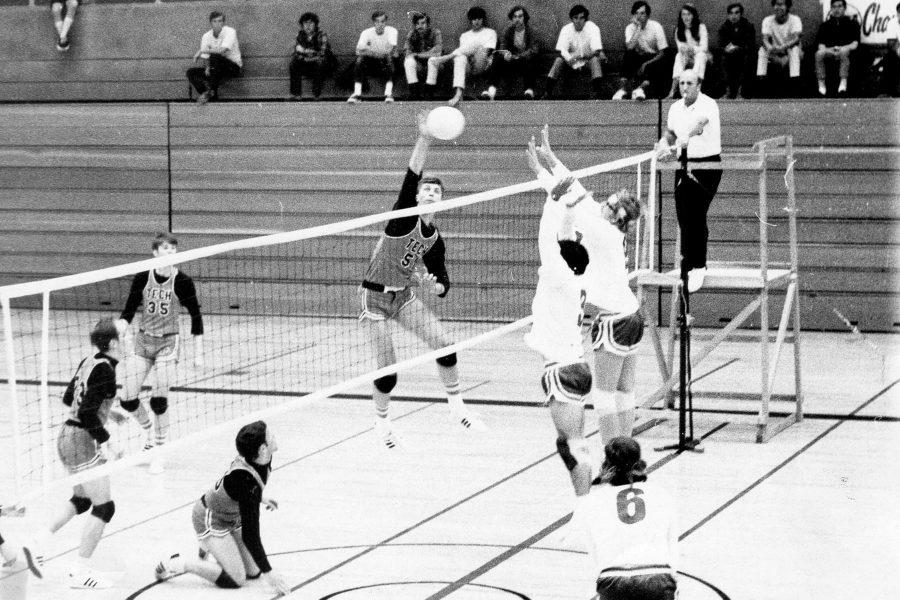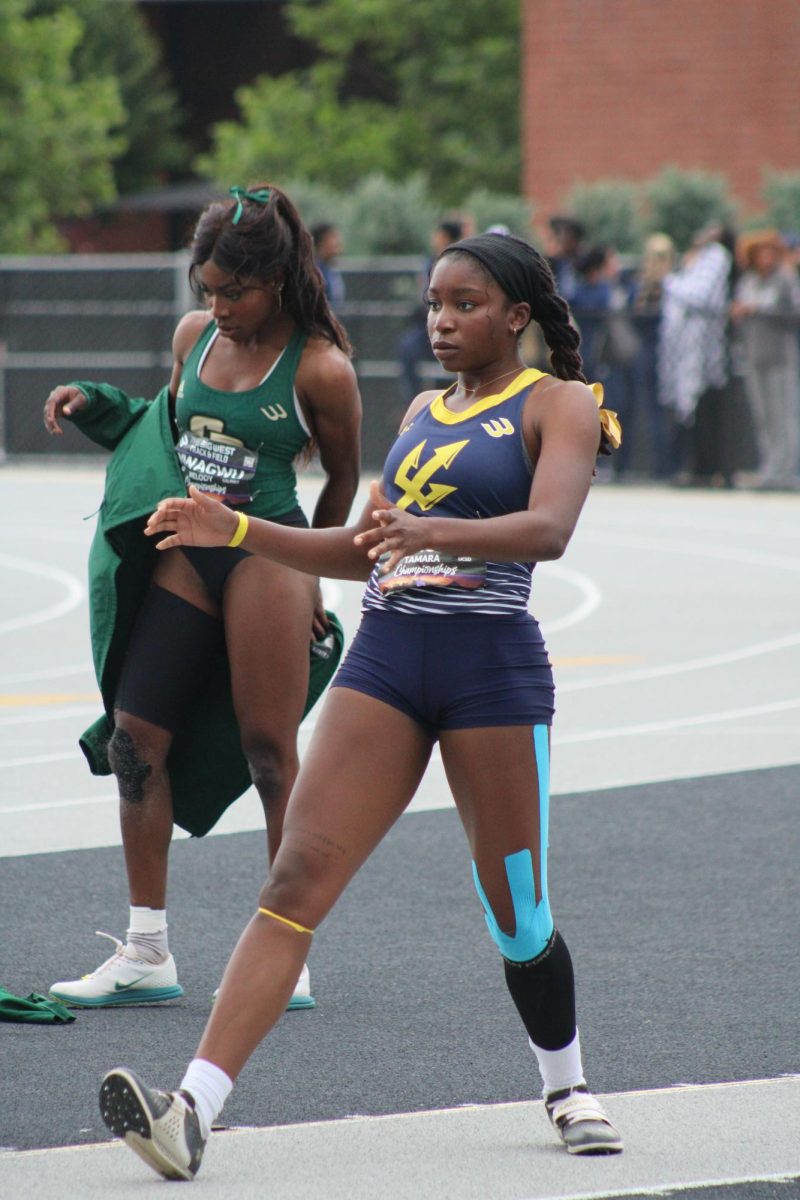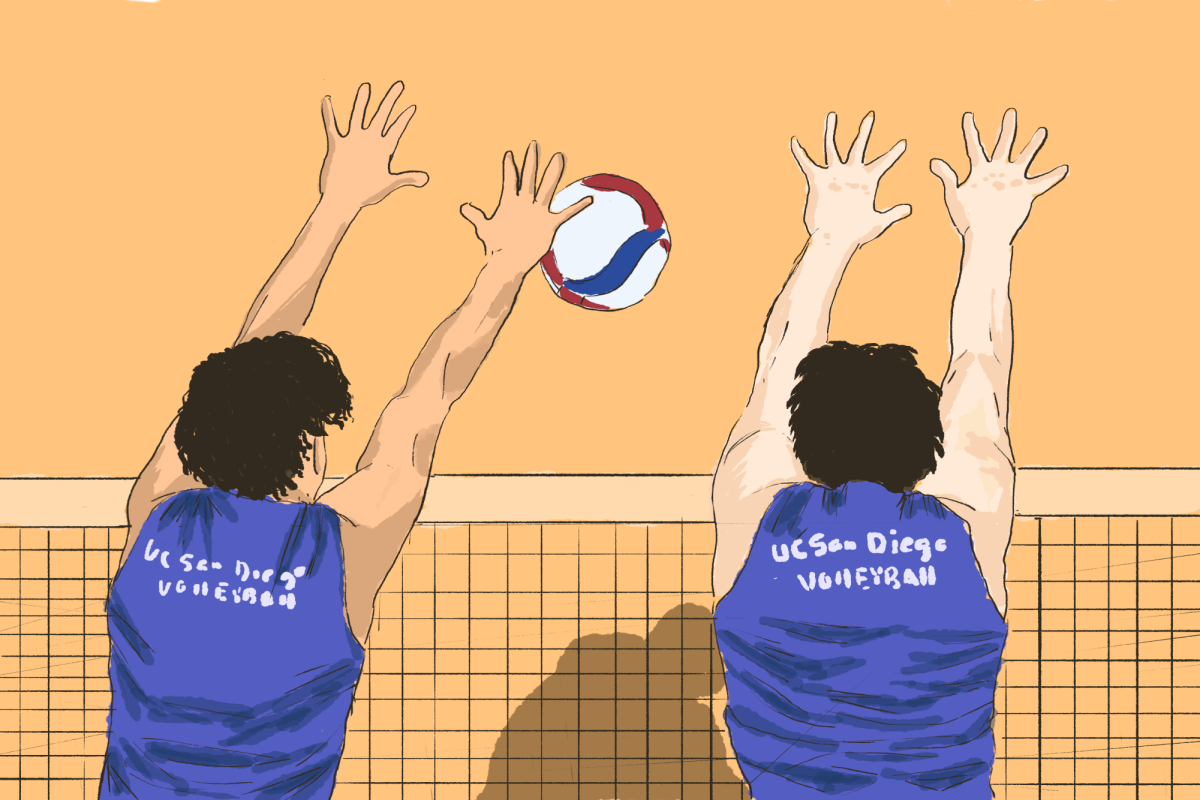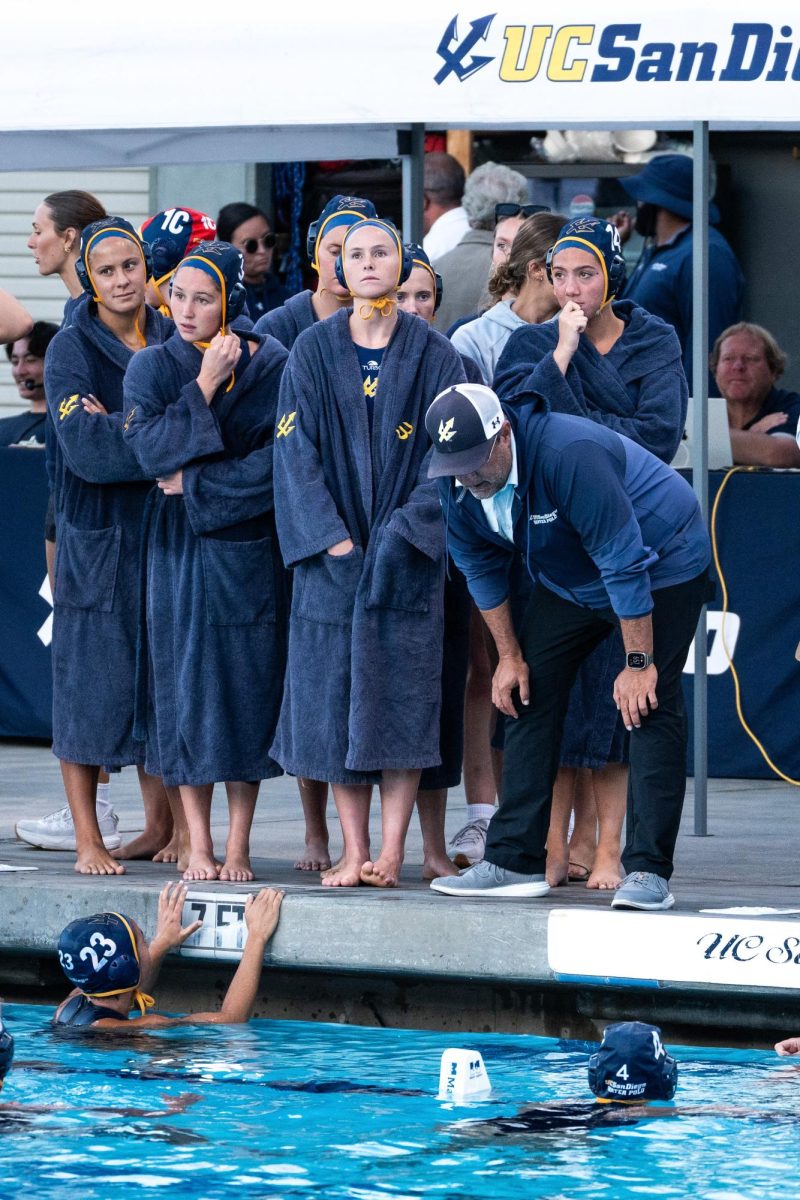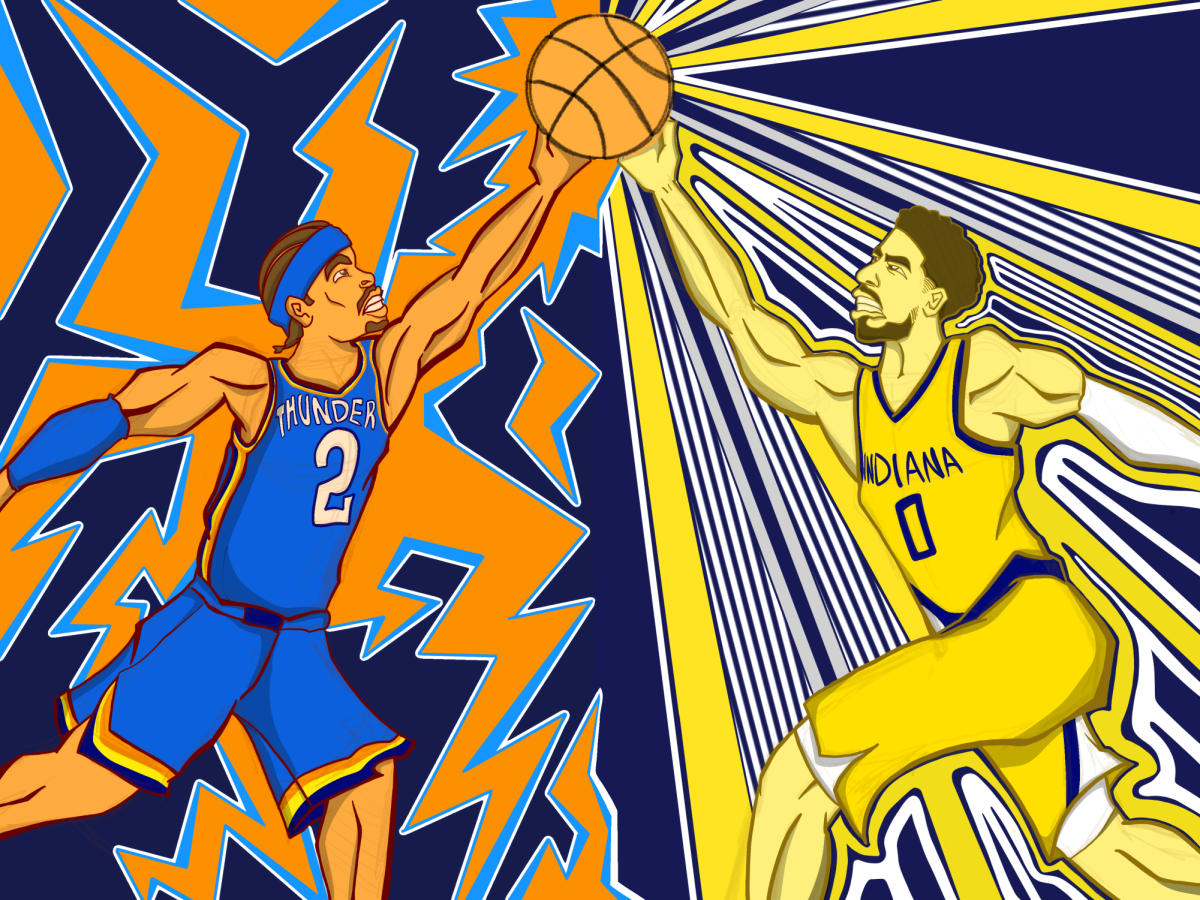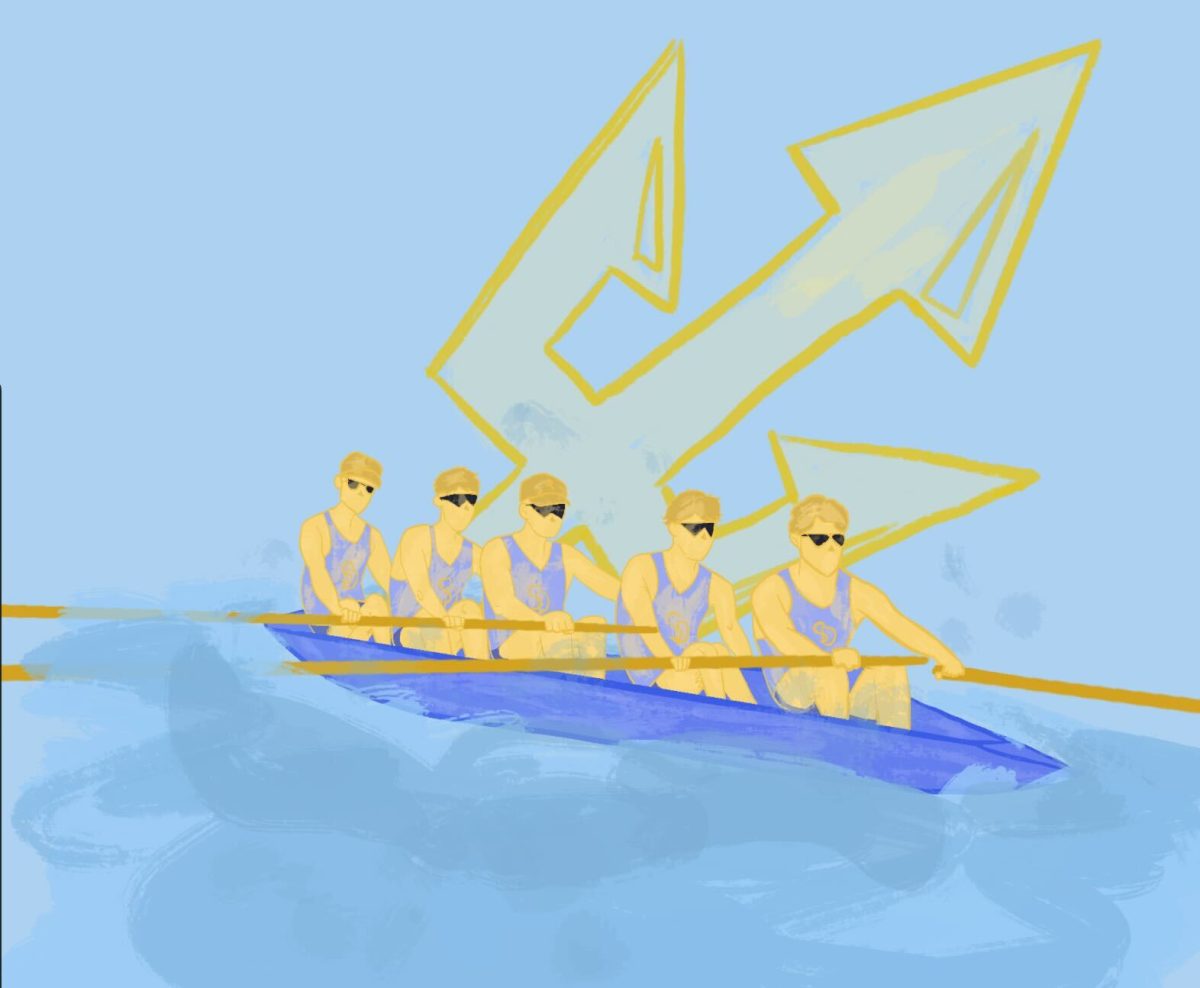With the coronavirus pandemic putting live sports on the backburner, the last few months have been filled with “On this day in sports history…” remembrances. Across professional sports, archival footage has displayed the exploits of our favorite players and teams from across generations in an effort to fill the void live sports left behind.
Though they played in different eras, the stories of our favorite teams from the past still have plenty to teach us, especially now that we have more ample time and attention to give them; one such team played its home games in La Jolla.
Fifty years ago, in the fledgling years of UC San Diego, the men’s volleyball team won the first national championship in school history, taking home the NAIA Small College Championship over Indiana Tech University on April 30, 1970.
But unlike today’s Tritons, the 1970 squad had a far different set of resources at their disposal. Players were not on scholarships, and the campus had only one gym, with a pool and dirt parking lot behind it. Players were not recruited out of high school, largely because high school volleyball had not yet expanded to the mainstream status it holds today.
Instead, players who had never participated in organized volleyball found a way to slot in hours of practice, learning the sport with full course loads and part-time jobs. Tim Rose and his roommate Earl Holmes both played volleyball for UCSD’s 1970 championship team, and for the third-place team in 1969.
The duo joined the team with no volleyball experience, but a love for the game drove them to keep at it. Two years after being introduced to the game by a beginner’s volleyball class, Rose would have a national title under his belt.
“[The team] lacked players so they took me in, and the coach, Jim Callendar, spent 3 months teaching me how to spike, block, pass, and set,” Rose said. “I sort of became obsessed with volleyball and my roommate Earle [and I] spent all of our spare time playing volleyball.”
Rose’s teammate Christopher Oberg joined the team under similar circumstances. Like Rose, Oberg had played basketball in high school, and came to UCSD to study oceanography and to surf, not for sports and especially not for volleyball.
“We were less a recruited group than a really organized club team, all carrying full academic loads and working as well,” Oberg said. “We had a love for the sport.”
After limping through the early stages of the championship tournament, the team buckled down and dominated the rest of the way, even without years of game experience to draw from.
“We tenaciously hung in there and took out all of the other teams — including the number one seed — by never letting up,” Rose said. “I think what affected me the most was how we all worked together and overcame the odds to win the championship.”
Now, the men’s volleyball team finds itself in a similar position five decades later, only on a slightly bigger, RIMAC Arena-sized stage. With players on scholarships and plenty of gyms to practice in, the men’s volleyball program is one of the strongest at UCSD. The team is one of a select few that led Triton Athletics into NCAA Division I competition back in 2017.
Only a few seasons later, with the rest of the university’s teams competing in their final seasons at the Division II level, the men’s volleyball team found themselves in the midst of a breakout season this year.
The 2019-2020 team towered over the milestones that squads of the last few decades left behind. This year’s Tritons secured their first wins in the Big West conference this season on their way to national prominence. With wins over UC Irvine at home and on the road, UCSD vaulted up the national standings into sixth place in the NCAA Division I. The Tritons ended their season with a win against another ranked opponent, Pennsylvania State University, giving them seven on the year.
After this season, the program as a whole carries a hefty weight that could set into motion a lasting legacy on campus. Rivalries against UC Irvine and UCLA are beginning to take shape; student involvement is increasing as the big-name programs begin to do battle in RIMAC Arena; ESPN3 covers every men’s volleyball home game.
This was the year for the men’s volleyball team to finally have a chance to return to its roots and fight to bring another national championship back to La Jolla.
Obviously, the odds would have been stacked against them. The top-ranked Rainbow Warriors from the University of Hawaii would have certainly tested the Tritons’ mettle come playoff time, and so too would have the rest of the Big West.
But the team was stripped of the chance to compete this spring, as were teams at all levels of competition across the sports world. The milestone-wrecking season would not see UCSD win its first Big West tournament match, a game that would have symbolized the ultimate culmination of efforts for the emergent program.
Instead of celebrations came Zoom meetings and stay-at-home orders. And even though the Tritons of 1970 got the chance to compete in the playoffs and end their season on their own terms, they still can appreciate losing any chance to celebrate.
When the men’s volleyball team returned to campus in 1970, fresh off their national win, there was no parade or pep rally, but instead protest. Volleyball and sports in general were not on any UCSD student’s minds at that time.
“We voted as a student body that previous fall not to have a football team or otherwise engage in high level college sports,” Oberg said.
But the lack of celebration in 1970 went beyond any general disdain for athletic competition the student body may have harbored the year before. During that season, the Vietnam War was the prescient issue and protests rocked college campuses around the nation. UCSD’s campus was no exception.
“That spring was the invasion of Cambodia –– in fact, while the bombing had been going on for years, the actual military movement into the country began during the championship tournament,” Oberg said. “And then four days later we had the Kent State killing of a student by the National Guard. So was the campus aware? Hardly. But it didn’t take anything away from what we enjoyed.”
Their lives already filled to the brim with volleyball, work, and class, the added pressures of the protest made the escape volleyball provided, even if just for a short while, even more valuable.
“There was a lot of social strife going on obviously on campus, which disrupted a lot of classes, as well as our minds. The Vietnam war was foremost in everyone’s mind, as was the issue of the military draft, which had just had a lottery to give a number to all boys,” Rose said, whose draft number meant he would be going to war directly after college graduation. “There did not seem to be much awareness of the volleyball team or the national championship. My wife, Lynn, was a lifeguard at the pool at the time (prior to me knowing her) and wasn’t aware of the national championship going on next door.”
For all the differences and years separating these two distinctly era-defining UCSD men’s volleyball teams, one theme is constant: a murky and uncertain future.
“We’re all worried about our futures, and there is a lot on our plate even in the best of times,” current head coach Kevin Ring said, “so be open-minded to what direction you may go.”
This message came from the Zoom meeting Ring and Oberg helped set up between a few members of the 1970 team and the Tritons of today.
“There are always events both beyond our control, but they can’t take away from what we had,” Oberg said. “It would have been nice to celebrate our championship, but war trumped winning and I don’t resent that. It’s always provided me perspective as I grew older.”
Even while on campus, volleyball was only a piece of Rose and Oberg’s days. Classes, work, and surfing all served important roles within their lives as well, breeding a balance that is characteristic within student-athletes, both from 1970 and today.
“Being a student athlete is a tremendous internship,” Ring said. “It’s not just that you’re grinding through the season and putting in so much time and energy, but you learn how to be part of a team and to set goals. That kind of experience is really sought after in the workforce.”
This sentiment of openness and going with the flow permeated throughout the Zoom meeting and seems to represent the team’s effect on its players, even so many years later. But there may be no better embodiment of this mindset than Rose’s life after UCSD.
After graduating from UCSD, Nixon ended the draft, which allowed Rose to stay in San Diego and marry Lynn while working at Scripps as a research technician. He even got some of the other graduated players to join him on a club volleyball team. But Rose wouldn’t stay put for long.
He and his wife took the advice of a German co-worker and tried living abroad. The couple worked for the World Health Organization in Geneva, Switzerland, and did graduate work at the University of Geneva, earning PhDs in immunology and molecular biology, respectively.
But that didn’t mean he was done playing volleyball. Just as he’d done in La Jolla, Rose found a release through volleyball, playing in a small elementary school gym with a club team. But that simple once-a-week workout turned into much more. Thanks to a well-connected club coach Rose got a chance to play for Star-Onex, a national club team with an A squad in the top league in Switzerland.
“Due to my experience in volleyball at UCSD, I ended up playing in the top division in Switzerland for seven years, making long time friendships with Swiss players, learning French and traveling all over Switzerland, France and Germany playing volleyball,” Rose said. “I also played on the University of Geneva volleyball team made up of National A League players, and we won two Swiss National titles.”
Now, with the help of their team and teams of the past, players have to prepare for their own uncertain futures. For some, their time at UCSD is over, and for others a chance at a redemptive season looms large in their training. But in the back of everyone’s mind is the comforting fact that they’ve got a generation-spanning support system that can last at least 50 years, and even a shortened season can’t take that away.
Photo Courtesy of Tim Rose


